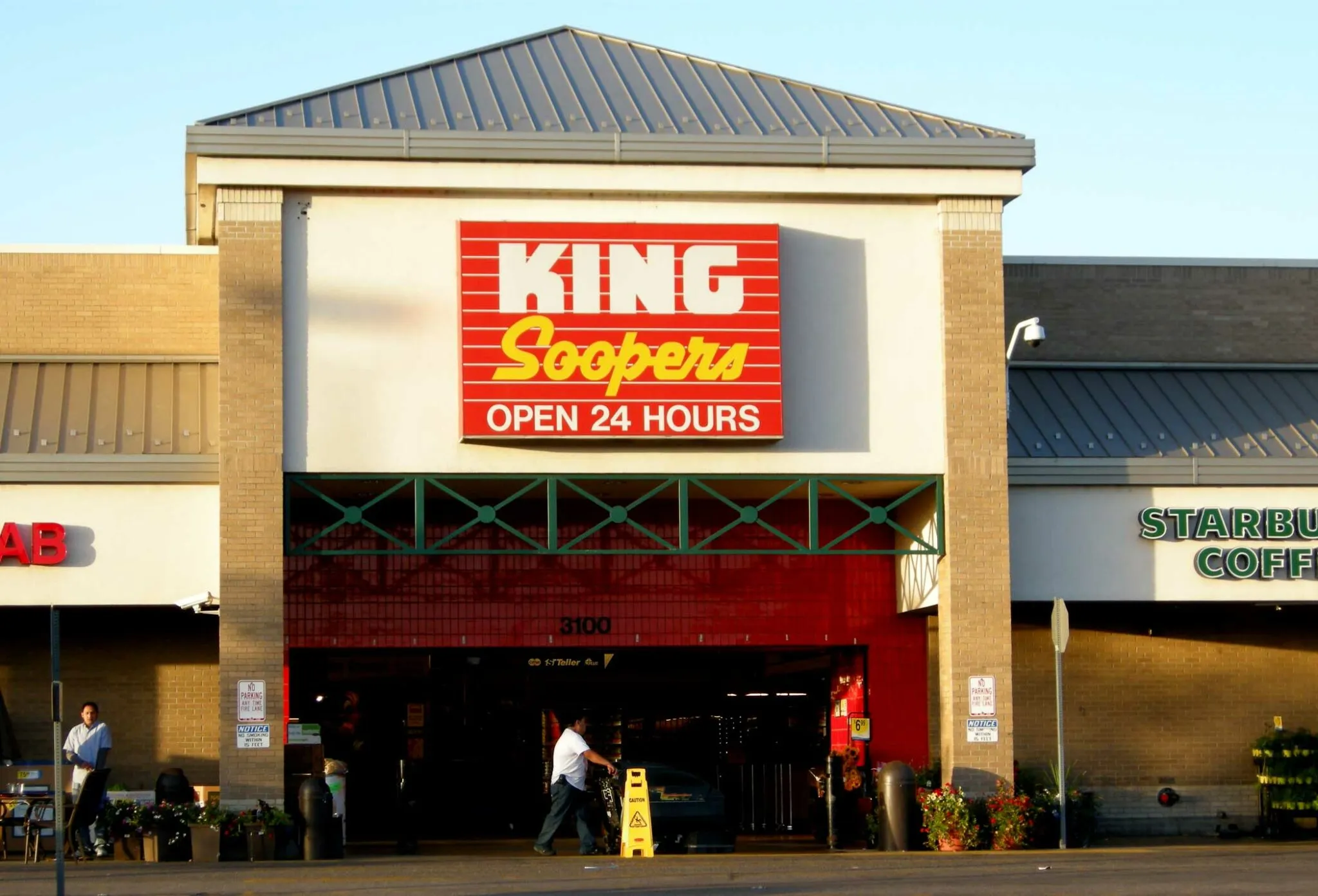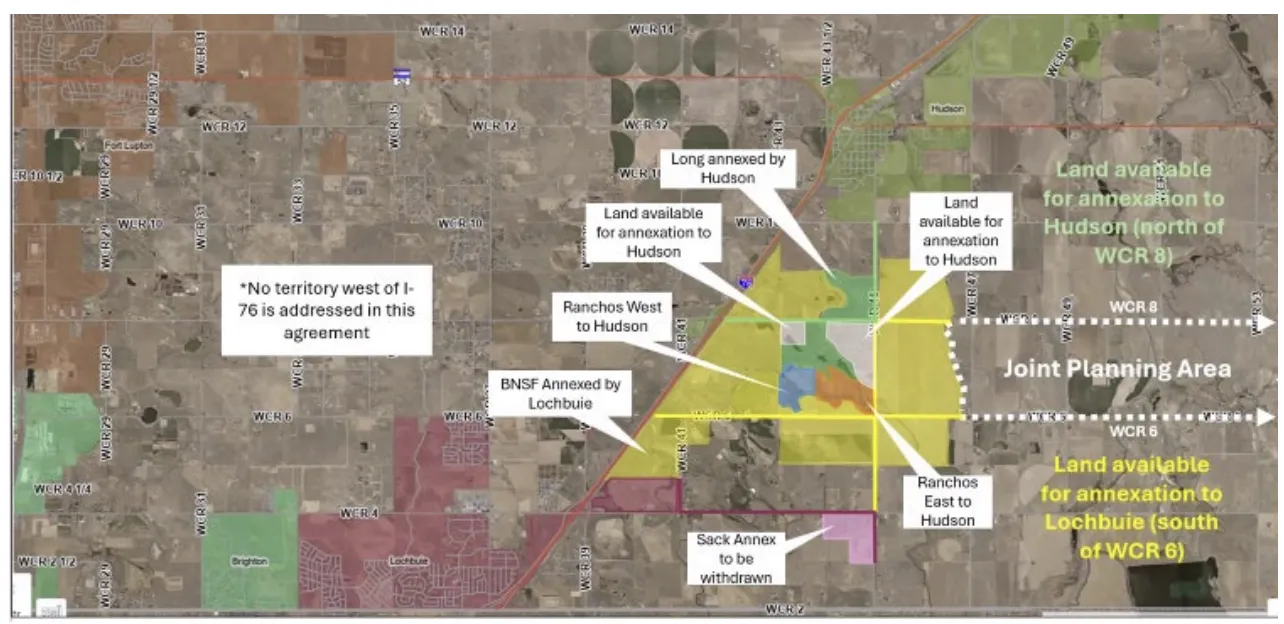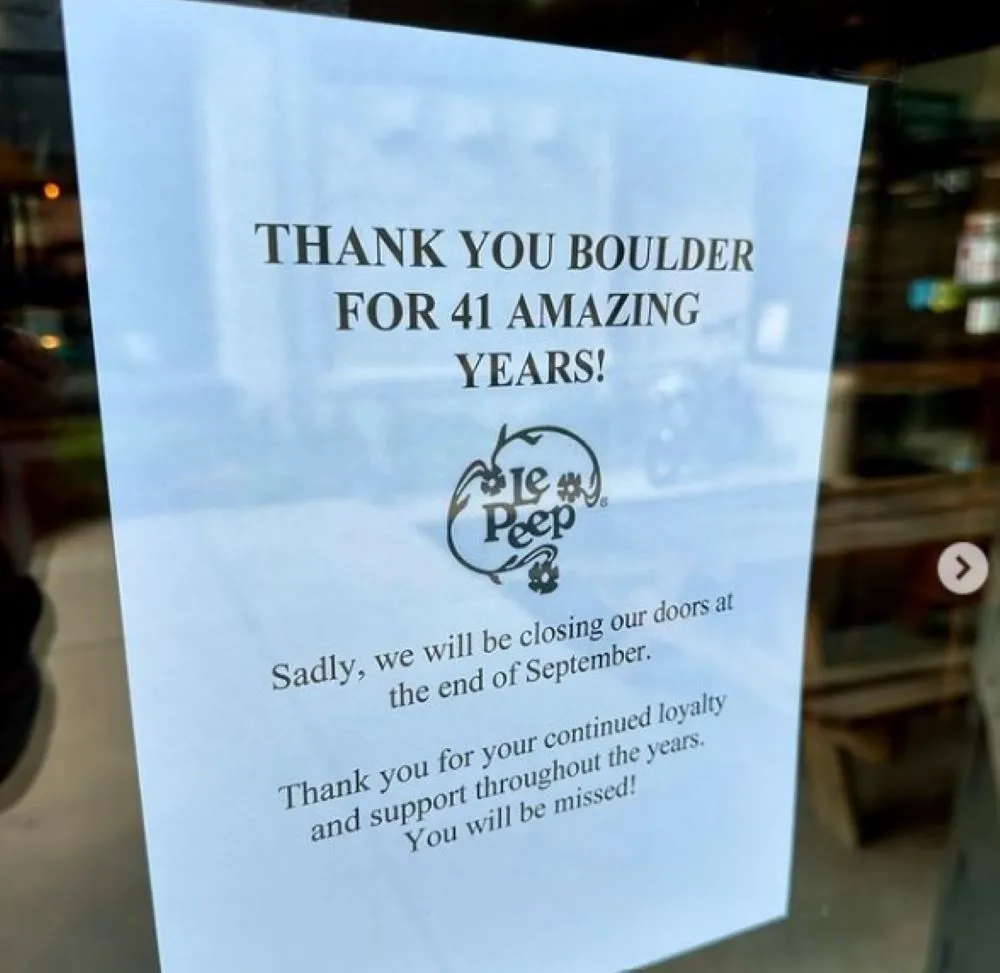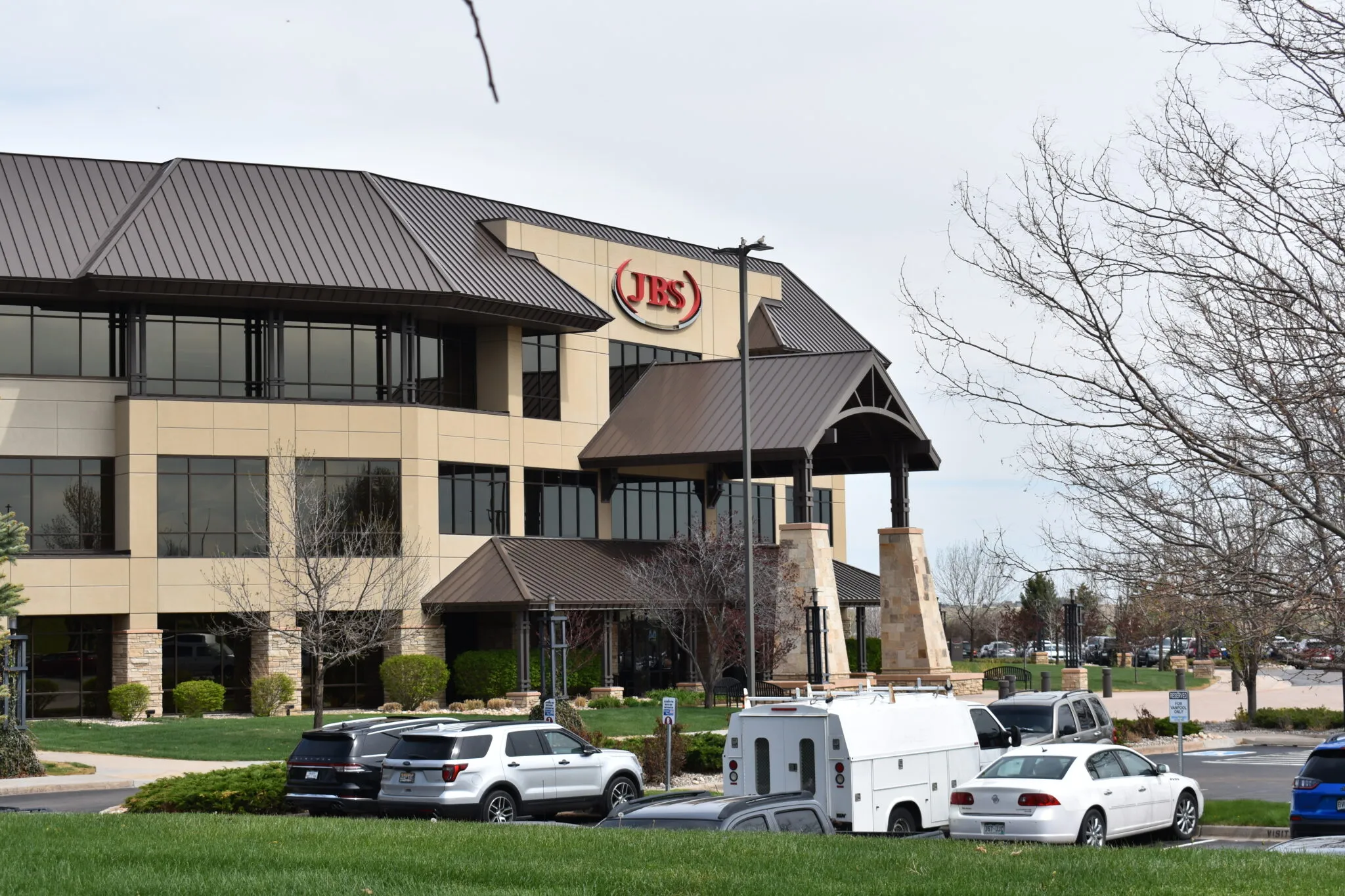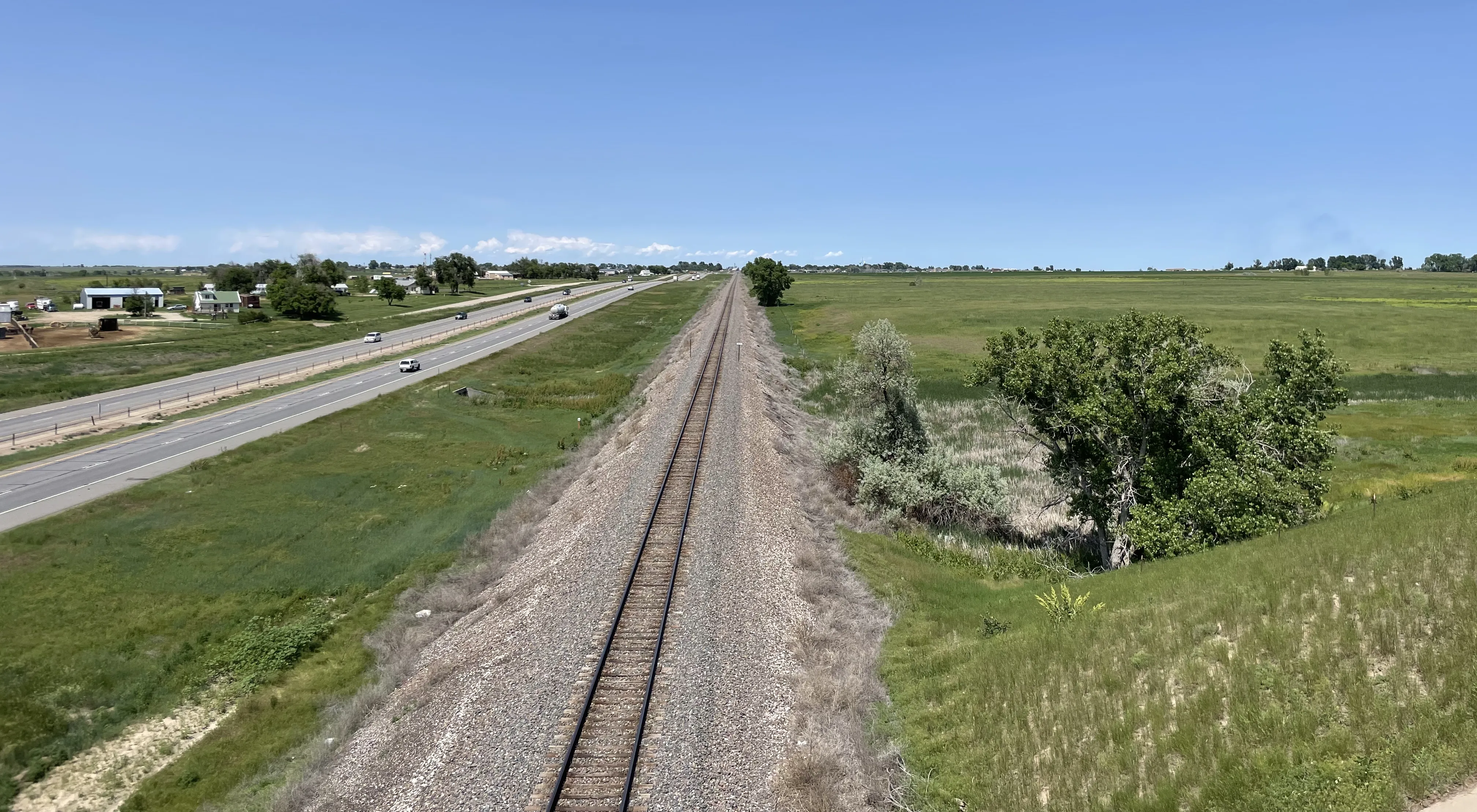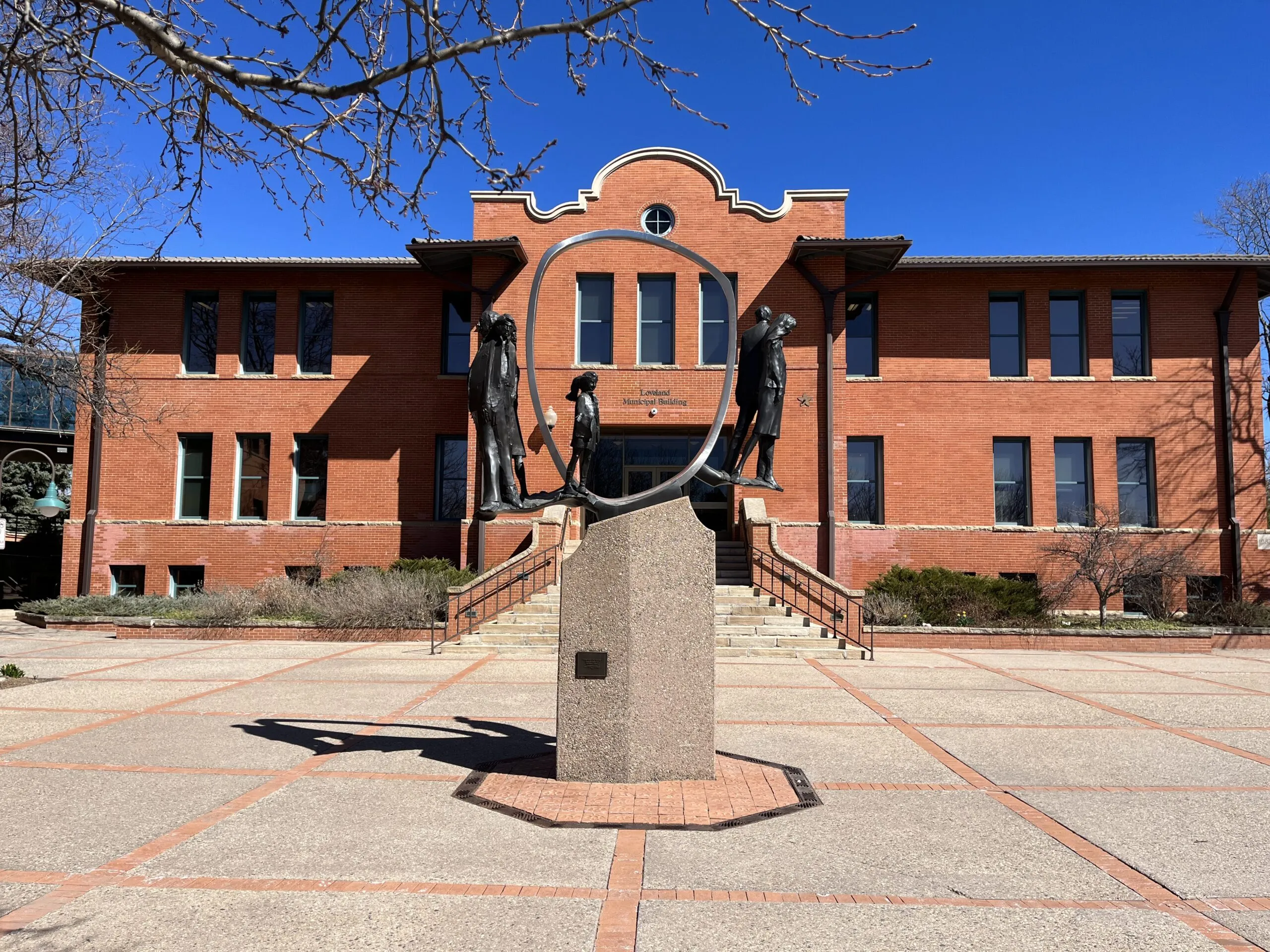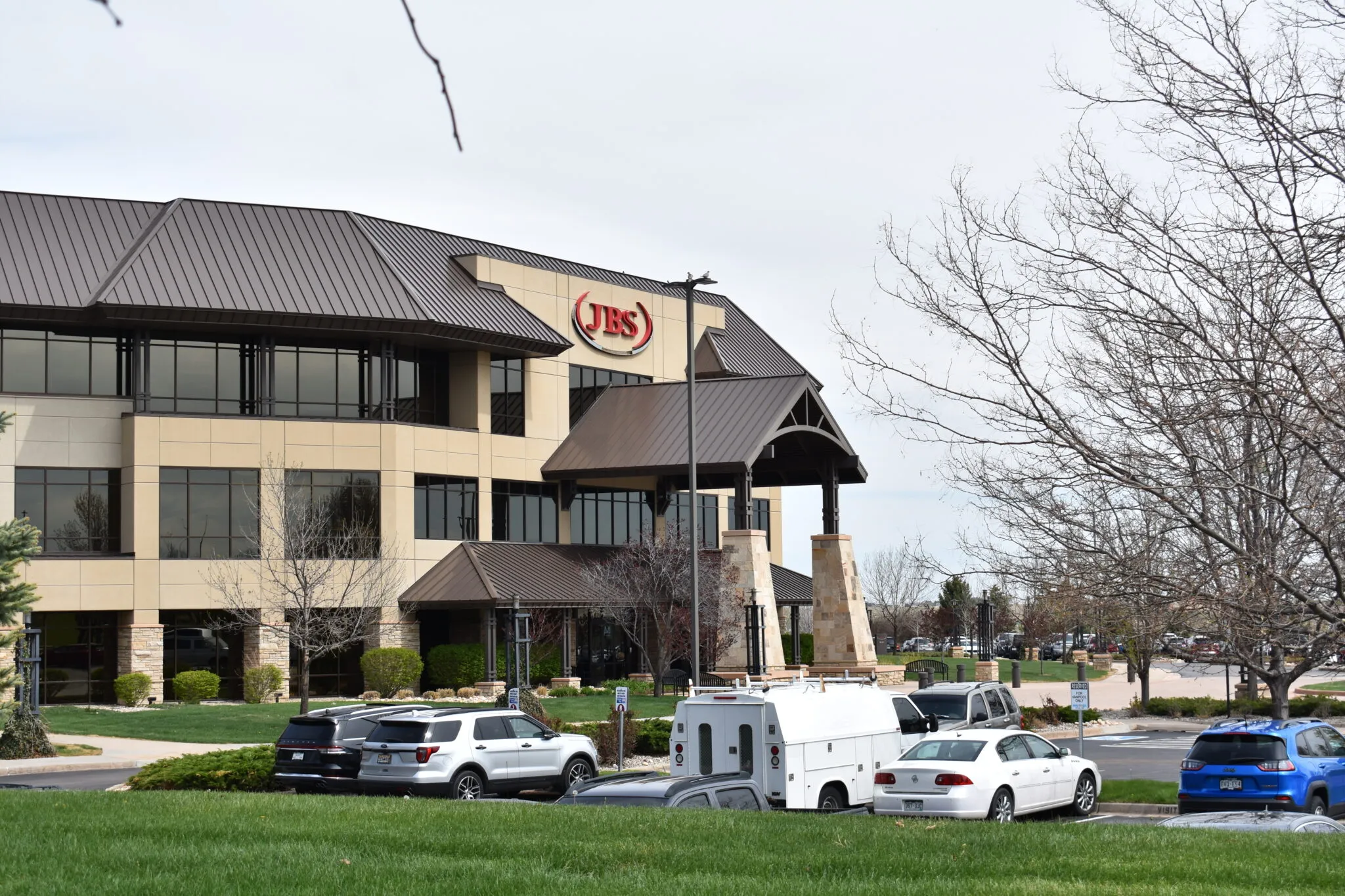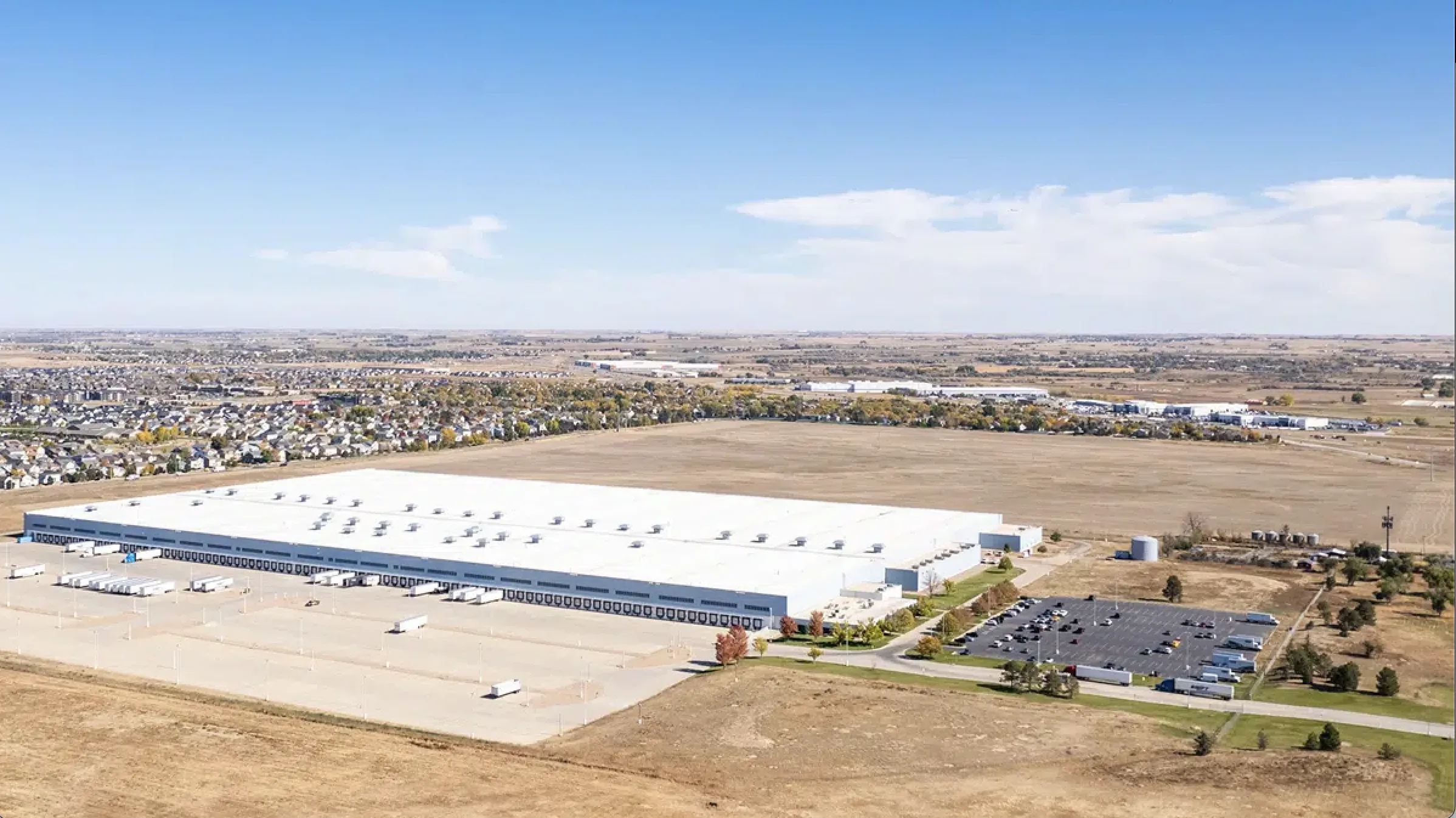With no new contract, King Soopers workers could vote to strike
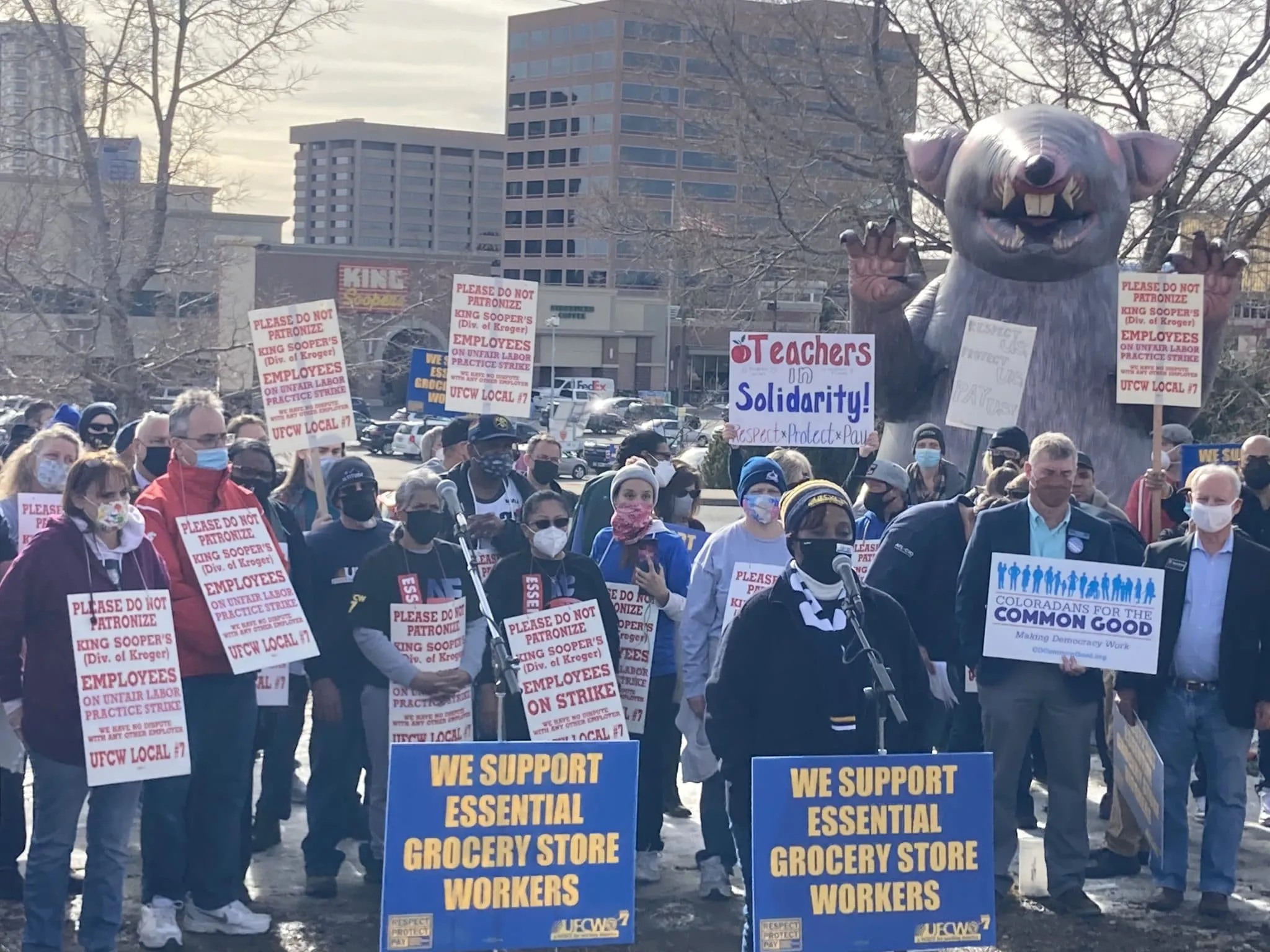
Having failed to reach a deal with King Soopers on a new labor contract, union members could go on strike for the second time in three years.
THIS ARTICLE IS FOR SUBSCRIBERS ONLY
Continue reading for less than $3 per week!
Get a month of award-winning local business news, trends and insights
Access award-winning content today!
Processing your subscription now!
If you canceled your payment, click here to close this window.
If you processed a payment and this page does not reload in 10 seconds, please reach out to Bruce Dennis at 303-630-1953 for additional assistance.
Related Posts
-
Negotiators with King Soopers and United Food and Commercial Workers Local 7 are meeting Wednesday…
-
The University of Colorado is spearheading the establishment of an incubator for quantum-technology startup companies…
-
S&W Seed's stock price grew like a weed Tuesday, sprouting more than 30% on news…
-
Rare earth metals are critical components of many electronic devices, but the elements, which have…
-
Core Spaces LLC, a Chicago-based student-housing developer, is the buyer that is expected to take…
-
Colorado State and Utah State universities sued the Mountain West Conference this week, claiming that…
-
The relationship between grocery giants Albertsons and Kroger Co. appears to have passed its sell-by…
-
Judges in Oregon and Washington issued injunctions Tuesday halting, at least for the moment, a…
-
“Slower growth … may be the new reality for Colorado as population growth, especially through…
-
Capstone at Centerra has been sold, but a marketing official for says she anticipates no…
-
In a decision that could again tip the balance of power in Loveland city government,…
-
The Windsor Downtown Alliance is on some shaky ground after the Windsor Town Board on…
-
Several towns in fast-growing Northern Colorado may soon be able to give the green light…
-
Dreams for a massive hockey arena, hotel, convention center and indoor water park are easy…
-
A Utah development company has purchased Greeley’s Elk Lakes Shopping Center at U.S. Highway 34…
-
Edison’s Ice Cream will occupy the approximately 1,600-square-foot space at 172 N. College Ave. in…
-
Airplane manufacturer Boeing will eliminate 63 jobs across Colorado operations in Arapahoe, Denver, El Paso…
-
Gastamo Group LLC, the Denver-based restaurant group behind popular concepts such as Birdcall and Park…
-
After 65 years, the family-owned Bandimere Speedway will get a spark of new life, and…
-
Veloce Energy Inc., a startup company that develops modular devices to make electrification easier is…
-
The Colorado Educational and Cultural Facilities Authority approved the documents necessary to issue bonds for…
-
BOULDER — Kura Sushi USA Inc., the American subsidiary of a Japanese rotating sushi bar…
-
Domenic’s Bistro and Wine Bar will close after dinner this Sunday at 931 E. Harmony…
-
Group Publishing Inc., a 50-year-old Loveland-based provider of curriculum materials for youth and adult Sunday-school…
-
Longmont will be the first city in the nation to join a United Nations program…
-
The state of the Future Legends Sports Complex in Windsor is in general mismanagement, neglect…
-
If there was ever one thing plaguing communities in Northern Colorado, hands down, it would…
-
Experts who spoke Tuesday at the Boulder Chamber’s Economic Summit weren’t shy about touting the…
-
The months-long tug-of-war between Hudson and Lochbuie fighting over control of the BNSF Railway Co.…
-
WELD COUNTY — Magnum Feedyards has operated for more than 30 years in eastern Weld…
-
Vail Resorts plans to lay off 14% of its corporate workforce and about 1% of…
-
The Le Peep location in the Village Shopping Center will close after business hours on…
-
The United Food and Commercial Workers Local 7 is calling on local, state and federal…
-
Having been banned for 11 years, recreational marijuana sales are coming back before Windsor voters…
-
A day after Boulder officials informed the owners, management and residents of Ash House that…
-
Little more than a year after Boulder’s historic Marpa House was turned into rental housing…
-
The saga over a local memory care center potentially being taken over by its bank…
-
Boulder is one step closer to winning the opportunity to host the Sundance Film Festival…
-
A Weld District Court judge put the Future Legends structures under receivership Tuesday, after Future…
-
Homebrewing enthusiast Brandon Shaw, a longtime resident of Northern Colorado, has taken over ownership of…
-
The Esh family, which has owned Esh’s Market in Loveland for 22 years, has purchased…
-
The Airport Neighborhood Campaign ran a successful petition drive for two ballot measures related to…
-
As the Boulder City Council mulls its options for raising the city’s minimum wage, the…
-
Ambrosia Biosciences Inc., a recently formed drug-discovery company, has raised a $16 million Series A…
-
Windsor developer Martin Lind has acquired approximately 220 more acres of land in west Greeley…
-
Contrary to speculation in some social-media platforms that Whole Foods had withdrawn from the proposed…
-
The University of Northern Colorado Board of Trustees unanimously approved documents that will allow the…
-
WELD COUNTY — Days before entering another round of court-ordered mediation, the towns of Hudson…
-
Larimer County officials late Wednesday said they were surprised and disappointed to learn through media…
-
It didn’t take long for the Greeley City Council to give its blessing for city…
-
The proposed new arena in Greeley would be able to seat 8,500 to 9,000 people…
-
German pharmaceutical manufacturer Corden Pharma International GmbH plans to invest nearly $500 million over the…
-
Vivo Living, a 210-unit attainable-housing building in Longmont that for decades had been a hotel…
-
DENVER — Bankruptcy filings in Colorado increased 26% in June from the same period a…
-
Brighton City Council on Tuesday tossed a heaping helping of sales and use tax love…
-
Elevate Quantum beat a group from Illinois to win a phase two Tech Hub designation,…
-
The Old West-themed performers who entertained tourists for years have ridden off into the sunset,…
-
A Weld County District Court judge has ordered the towns of Hudson and Lochbuie into…
-
The communities along the U.S. Highway 36 corridor have taken major steps beyond the shadows…
-
Cheri Witt-Brown, CEO of Greeley-Weld Habitat for Humanity, and others will unveil what will be:…
-
A Shamrock Foodservice Warehouse retail store will open on July 18 in a Louisville building…
-
Loveland will extend incentives to Hensel Phelps to help with its headquarters relocation to the…
-
BizWest honored four winners of its 2023 IQ awards in an event held Thursday at…
-
Agfinity, Colorado's largest agriculture cooperative, will officially open the doors to its new corporate headquarters…
-
Members of the majority on the Loveland City Council, who met Tuesday night with special…
-
A presentation by Loveland’s city staff to a special City Council meeting on Tuesday will…
-
Legislature passes and sends to the governor a bill to create an osteopathic medical school…
-
A special prosecutor appointed last Friday by the five-member Loveland City Council majority was given…
-
One project nears completion, and another has yet to get out of the starting gate.…
-
Intel Corp. will sell its Fort Collins facility but doesn't plan to abandon the market.…
-
The Loveland City Council on Tuesday will decide whether to accept the terms of a…
-
A public golf resort designed by some of the sports’ big names could blossom in…
-
Gillig, a Livermore, California-based manufacturer of heavy-duty transit buses, is launching a “Colorado Technology Center”…
-
Global business accelerator Techstars has decided to move its headquarters from Boulder to New York…
-
A Seattle-based lender has petitioned Larimer County District Court to collect on an unpaid $11.9…
-
A Georgia developer with designs on transforming the aging Millennium Harvest House hotel into housing…
-
Blumhouse Productions will serve as the exclusive exhibit curator at the yet-to-be-developed Stanley Film Center…
-
LOVELAND — Although post-pandemic challenges remain in several business sectors, a leading economist and leaders…
-
Standup comedy, which for decades has been mostly confined to big-city comedy clubs, is making…
-
BOULDER — SomaLogic Inc. (Nasdaq: SLGC) said Thursday evening that its $1 billion merger with…
-
COLORADO SPRINGS — Broadmoor Hotel Inc. has filed lawsuits against JBS USA Inc. and the…
-
LOVELAND — Years of collaboration among city, county, state and federal governments, along with active…
-
ESTES PARK – Just three months ahead of Estes Park’s second annual quirky festival to…
-
LONGMONT — A U.S. District Court judge for the District of Colorado has issued a…
-
BOULDER — Commercial real estate brokers are dealing with some intriguing dilemmas in the retail…
-
LARIMER COUNTY — In what may be the only fully passive home neighborhood in the…
-
A high-profile state ballot measure that would have weakened Colorado’s Taxpayer Bill of Rights while…
-
LOVELAND — Centerra South, the new mixed-use commercial and residential development across U.S. Highway 34…
-
BOULDER — SomaLogic Inc. (Nasdaq: SLGC) and California-based Standard BioTools Inc. (Nasdaq: LAB) have agreed…
-
BOULDER — As Colorado’s job growth slows to a level that one University of Colorado…
-
GREELEY — A Weld County District Court judge has ordered that a receiver take over…
-
BRIGHTON — Colorado’s already significant renewable-energy sector is expected to undergo a major growth spurt…
-
BOULDER — A sweeping redevelopment proposal for one of Boulder’s most-traveled corners would put more…
-
Hard rain that fell in broad sheets across the northern Front Range foothills and plains…
-
GREELEY — A 291-acre commercial and residential development that may eventually be home to at…
-
BRIGHTON — Rezoning of the former Kmart Distribution Center at 18875 Bromley Lane to allow…
-
FORT COLLINS — It was once a separate entity. Should it be again? What is…
-
JOHNSTOWN — An Englewood property investor has purchased a new industrial warehouse property in the…
-
LOUISVILLE — Marcel Arsenault was looking for something in particular when he bought the newly…
-
LAFAYETTE — In one of Boulder County’s richest commercial real estate deals of 2023, Real…
-
LOVELAND — An economic-incentive package for a proposed Bass Pro Shops store won unanimous Loveland…
-
LOVELAND — After more than a decade of fishing, Loveland finally may have landed a…
-
WESTMINSTER — Ball Corp. (NYSE: BALL) is selling its Ball Aerospace and Technologies Corp. division…
-
BOULDER — After a debate that lasted nearly four hours on Tuesday, Boulder County commissioners…
-
LONGMONT — It’s a dispute that has flared up frequently as growth overtakes a northern…
-
GREELEY — An energy company that owns and operates 56 solar-, wind– and gas-generation projects…
-
BOULDER — The real estate and development market in the Boulder Valley is still finding…
-
Campbell Soup Co. (NYSE:CPB) will slurp up Sovos Brands Inc. (Nasdaq: SOVO) in a stock…
-
NEVER SUMMER RANGE — The pair of moose seemed quite content, grazing on the abundant…
-
BOULDER — Boulder County officials said Friday that they plan to increase the minimum wage…
-
WESTMINSTER — Ball Corp. (NYSE: BALL) posted improved year-over-year bottom line results, beating Wall Street…
-
BOULDER — A group of Boulder area consumer-packaged goods industry veterans has launched Velocity CPG…
-
BOULDER — After a dozen years in the Pac 12, the University of Colorado Buffaloes…
-
TIMNATH — The Timnath Town Council Tuesday approved on first reading an amendment to the…
-
LOVELAND — Capital Tacos, a national Tex-Mex restaurant chain, will open its first Colorado store…
-
LOVELAND — Majority stockholders of the North Shore Manor Inc. nursing home in Loveland say…
-
BOULDER COUNTY — The pace of legal actions against Xcel Energy Inc., which investigators say…
-
LOUISVILLE — You’ve probably seen the Shamrock Foods Co. delivery trucks — logo of a…
-
ESTES PARK — Somehow, Berenice Nelson just knew. For weeks, she and husband Tory had…
-
LOVELAND — In what proponents say is as significant as electrification of America or the…
-
FORT COLLINS - Is it possible for the words "industrial" and "design" to be linked…
-
BROOMFIELD — The Allen Co., which for 50 years has manufactured hunting and fishing gear,…
-
Some call it “the hump” or “the gap.” Others call it the “valley of death.”…

